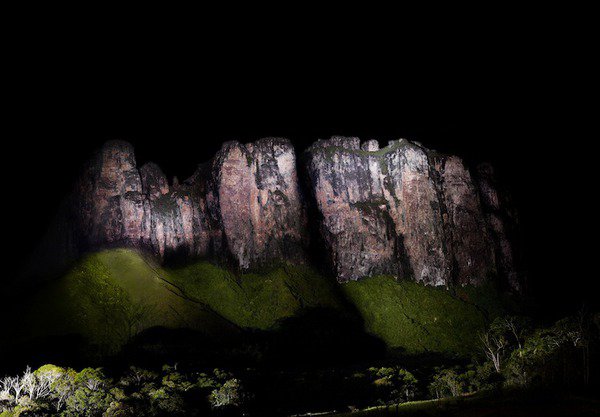Mathias Kessler
dal 14/6/2011 al 19/7/2011
Segnalato da
14/6/2011
Mathias Kessler
Rosphoto State Russian Center for Photography, St. Petersburg
The exhibition is dedicated to the theme of man's relationship with nature. The idea of Kessler is to produce a new photographic series in which he showcases his serving as documentary photographer for a scientific expedition in Venezuela and how he uses that role to expand his artistic practice. After conducting research on the Western perception and historical representation of nature, he developed different bodies of work that examine and update Western landscape traditions.

The exhibition by Mathias Kessler at ROSPHOTO is dedicated to the theme of man's relationship with nature.
In 2004, after a string of natural disasters and as a result of the ongoing media focus on global warming, I undertook to develop a second "look" at nature in order to better show how we perceive and encounter it today. After conducting research on the Western perception and historical representation of nature, I developed different bodies of work that examine and update Western landscape traditions, in order to better reveal how the depiction of landscape is also the matter of its production, and show how historical changes in these representations relate to contemporary images of the landscape.
To produce these bodies of work, I traveled to the very hot spots and man-made disaster zones that were most often featured in media stories about global warming. I took part in the new cultural practice of disaster tourism, where individuals see for themselves the unexpected scale of the recent destruction and desolation of ecological systems. I was able to vividly understand how the earth responds to dysfunctional human communities that have lost their way.
I want my additions to and mixtures of the archived work to be an explicit part of the artwork itself. In this way, audiences will understand the construction of perception to a far better degree has been previously possible.
While this new project, I'll Survive, continues my research into our relationship with nature, it will also take a closer look at how we as individuals survive in society, and how our society as a whole survives within nature.
In my expeditions, I often asked the question, "what if something goes wrong?" of myself and my hired team. I learned that both cave exploration in the hinterlands of Venezuela, and travel by ship in the Arctic winter to photograph icebergs, can be deadly.
In an age where the use GPS and satellite communication enables real time communication and tracking of events over vast distances, it is hard to imagine the reality of a large-scale 18th and 19th century expeditions, where boats carrying large numbers of people could simply vanish from the earth with no survivors. The sublime horror and fear of nature is no longer physically present, and news of natural disasters seem only a distant flickering on the news channels.
In our ever-shrinking world, we will soon run out of places where pollution has not damaged the environment, where the water is still drinkable. It seems we are in a race against our own survival, and our technology is caught in an ever-spiraling pressure to advance to fix the problems we have created. Apocalyptic scenarios of environmental failures and our disappearance as a race are promoted in video games and science fiction movies. The truth is that nature does not need us, as we are led to believe; instead, we need nature to survive in this biosphere.
The idea of I'll Survive exhibition is to produce a new photographic series which showcases my serving as documentary photographer for a scientific expedition in Venezuela, and how I used that role to expand my artistic practice, further my investigation of landscape art, and apply new conceptual strategies to our models of representation—the digested, regurgitated media images of how nature is being colonized, reproduced, viewed, and advertised.
Rosphoto
35 Bolshaya Morskaya Street, Saint-Petersburg
Opening: daily 11-19
Admission fee to each exhibition hall - 100 rubles.
Free admission for students, AICA card holders, artists and museum employees.



